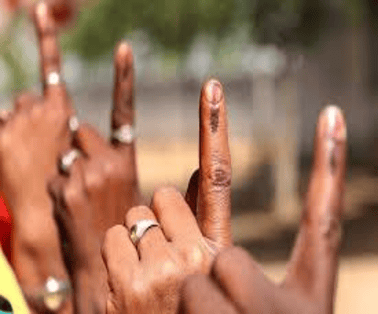The Supreme Court’s ruling on the Chandigarh mayoral election offers a crucial opportunity to examine broader issues surrounding municipality elections in India. This case not only reflects the procedural irregularities but also exposes systemic challenges in urban local governance that continue to persist despite constitutional mandates.
Key Points from the Supreme Court Verdict
- The Supreme Court of India quashed the mayoral election results of the Chandigarh Municipal Corporation after it found that the presiding officer had intentionally defaced eight ballots.
- Exercising its powers under Article 142 of the Constitution, the court ensured justice was served to uphold the sanctity of municipality elections and safeguard electoral democracy.
- While elections to the Lok Sabha and State Legislative Assemblies are generally timely and well-organized, elections to municipalities and other grassroots bodies are frequently delayed and mismanaged.
Alarming Status of Municipality Elections in India
- As per Janaagraha’s Annual Survey of India’s City-Systems 2023 study, over 1,400 municipalities did not have elected councils in place, as of September 2021
- The CAG’s audit reports of 17 States on the implementation of the 74th Constitution Amendment Act (74th CAA) observes that over 1,500 municipalities did not have elected councils in place during the audit period of 2015-2021 across States
- Among larger cities, the Greater Chennai Corporation had elections in 2022 after a gap of nearly six years, and the Municipal Corporation of Delhi had elections after a delay of seven months
- While the municipal corporations of Mumbai and Bengaluru are awaiting elections for over one and a half years and three years after the expiry of the term of their previous elected councils.
Major Issues with Municipality Elections
- Despite the Supreme Court stating in Suresh Mahajan v. State of Madhya Pradesh (2022) that this constitutional mandate is inviolable, State governments do not hold timely elections for urban local governments.
- In certain cases of elections to urban local governments, councils were not constituted, and elections of mayors, deputy mayors and standing committees were delayed.
- In Karnataka, there was a delay of 12-24 months in the formation of elected councils after the declaration of election results in most of the city corporations.
- There are various associated issues such as the discretion of government officials in scheduling elections on time, there is undue influence on officials to delay elections and discretion of officials in identifying the presiding officer.
- There is the manual ballot paper-based process, which raises concerns over the accountability and transparency of the election process.
- Unlike the Lok Sabha and State Assemblies, where there is a clear distinction between the legislature and the executive, in the case of a municipality, the mayor heads both the elected and the administrative wings of the city government.
- The duration of urban local governments is five years and that an election to constitute an urban local government should be completed “before the expiry of its duration”.
- However, the terms of mayors, deputy mayors and standing committees being less than five years is a concerning challenge.
- In India, 17% of cities including five of the eight largest ones have mayoral terms less than five years.
- There are various concerns that arise over the conduction of ward delimitation in India.
- Except for Meghalaya, all States have constituted SECs, only 11 have empowered them to conduct ward delimitation.
- Municipal areas shall be divided into territorial constituencies to be known as wards.
Constitutional and Legal Framework for Municipalities
- The superintendence, direction and control of the preparation of the electoral rolls for, and the conduct of, all elections to the panchayats and municipalities shall be vested in the State Election Commission (SEC).
- The 74th Constitutional Amendment bars the interference by courts in the electoral matters of municipalities.
- Article 243U of the 74th CAA stipulates that the duration of urban local governments is five years and that an election to constitute an urban local government should be completed “before the expiry of its duration”.
- Further, in case of dissolution of the elected council by the State, the election should be held before the expiration of a period of six months from the date of its dissolution.
- Elections should be conducted by State Election Commissions (SECs)
Municipality In India
- This institution has existed in India since British time.
- The British for the first time setup Municipal Corporation at Madras in 1687.
- Lord Ripon’s Resolution of 1882 has been hailed as the ‘Magna Carta’ of local self-government and he is called the father of the local-self government in India.
- 74th Constitutional Amendment Act was passed in 1992 and provided a uniform law for urban local government.
- The 74th Constitutional Amendment Act has added a new Part IX-A to the Constitution of India, which is entitled as ‘The Municipalities’ and consists of provisions from Articles 243-P to 243-ZG.
- The act gave constitutional status to the municipalities and has brought it under the purview of the justiciable part of the Constitution
Conclusion
The recent Supreme Court judgment on the Chandigarh mayoral election has reignited the conversation around the functioning of municipalities in India. Despite being the most immediate tier of governance for citizens, municipal bodies suffer from delayed elections, weak autonomy, and governance challenges. Addressing these issues is essential for strengthening urban democracy, empowering local bodies, and ensuring that municipality elections reflect the spirit of constitutional governance.
To Download Monthly Current Affairs PDF Click here
Click here to get a free demo
Discover all about CLAT Exam



